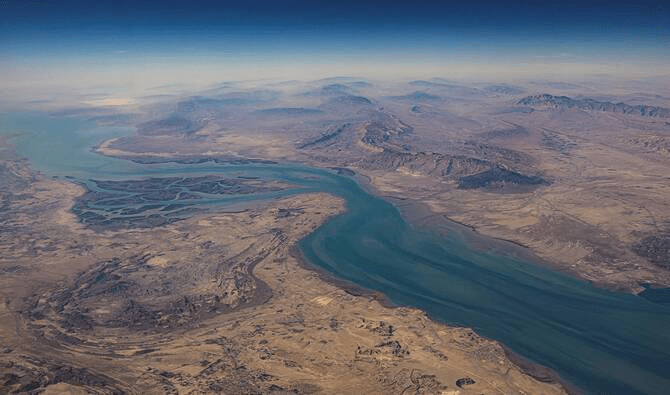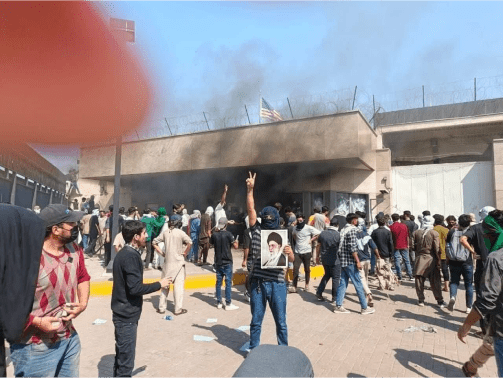President Trump said he “may” or “may not” order U.S. forces to attack Iran’s nuclear sites. Iran’s supreme leader, Ayatollah Ali Khamenei, rejected his call for “unconditional surrender.”
President Trump refused to say explicitly on Wednesday whether he would order U.S. forces to attack Iran’s nuclear sites, suggesting the possibility that he had not yet decided whether to join in the war between Iran and Israel.
“I may do it,” he told reporters on the White House lawn. “I may not do it. I mean, nobody knows what I’m going to do.”
Mr. Trump’s cryptic remarks were being watched closely for clues about his intentions as Israel’s strikes on Iran continued for a sixth straight day. The prospect of direct American involvement in the war has already added to fears of a wider conflagration in the Middle East, and led to rifts among the president’s Republican allies and supporters.
Hours earlier, Iran’s supreme leader, Ayatollah Ali Khamenei, had dismissed threats Mr. Trump had made a day earlier and rejected his call for an “unconditional surrender.”
“Intelligent people who know Iran, the nation and the history of Iran will never speak to this nation in the language of threats, because the Iranian nation cannot be surrendered,” Mr. Khamenei said in a televised statement, according to Iranian state media. “The Americans should know that any U.S. military intervention will undoubtedly be accompanied by irreparable damage.”
His remarks were a defiant response to Israel and to Mr. Trump, who has signaled that the United States was weighing whether to join Israel’s bombing campaign. Both the United States and Israel say that Iran must not be allowed to have atomic bombs; Iran insists that it is not trying to develop such weapons.
Mr. Trump said that Iran wanted to negotiate and that it was not too late for talks, but criticized the leadership in Tehran for not acting sooner.
“Why didn’t you negotiate with me two weeks ago? You could have done fine,” he said, ominously concluding, “You would have had a country.”
In fact, Iran had entered into negotiations with the United States about the future of its nuclear program — it put those talks on hold after Israel began bombing — but had not bowed to White House demands.
Israel has been pressing for the United States to assist in the effort to destroy Iran’s nuclear program, and in particular to use its largest bunker-busting bombs — which Israel does not have, nor the planes capable of delivering them — against Iranian nuclear facilities deep underground.
Mr. Trump has long maintained that he opposes getting involved in foreign wars and has repeatedly expressed hopes for a nuclear deal with Iran. But he said on Tuesday that “our patience is wearing thin,” and also cited the possibility of killing Mr. Khamenei.
Israel continued to pummel Iran on Wednesday, launching fresh strikes on Tehran. Earlier in the day, Israel’s military said more than 50 Israeli warplanes had attacked targets across the Iranian capital, including a nuclear centrifuge plant. The Iranian authorities did not immediately comment on the claims, though the U.N.’s nuclear watchdog said that two centrifuge production facilities had been hit.
Iran fired about 30 ballistic missiles at Israel in two barrages after midnight and two waves of drones on Wednesday morning, but most of the missiles and all the drones were intercepted, Israel said. There were no immediate reports of casualties, and Iran’s missile salvos appeared to be limited compared with earlier attacks.
Here’s what else to know:
- Threat of retaliation: Iranian officials have said that if the United States enters the war, Iran will attack American bases in the region. Iran has prepared missiles for these possible strikes, according to U.S. officials who have reviewed intelligence reports.
- Shift in strategy: In Iran, Israel is carrying out the kind of broad and brazen attack that it long threatened but never dared to enact. The campaign reflects an extraordinary shift in Israeli military doctrine since Hamas, Iran’s Palestinian ally, attacked the country in October 2023. That change has redrawn the power dynamics in the Middle East, unraveled Iran’s regional alliance and enshrined Israel as the dominant military force in the region.
- Stranded travelers: The first flights carrying Israelis stranded abroad landed at Ben Gurion International Airport on Wednesday as part of a wave of special transports to bring citizens home. Thousands of international tourists have been unable to leave Israel since the country’s airspace was closed to civilian flights last week.
- Internet disrupted: Amid severe disruptions to internet services in Iran, the country’s state broadcaster urged people to remove WhatsApp from their phones, claiming that the messaging app was collecting user information and sending it to Israel. WhatsApp has rejected the allegations.







